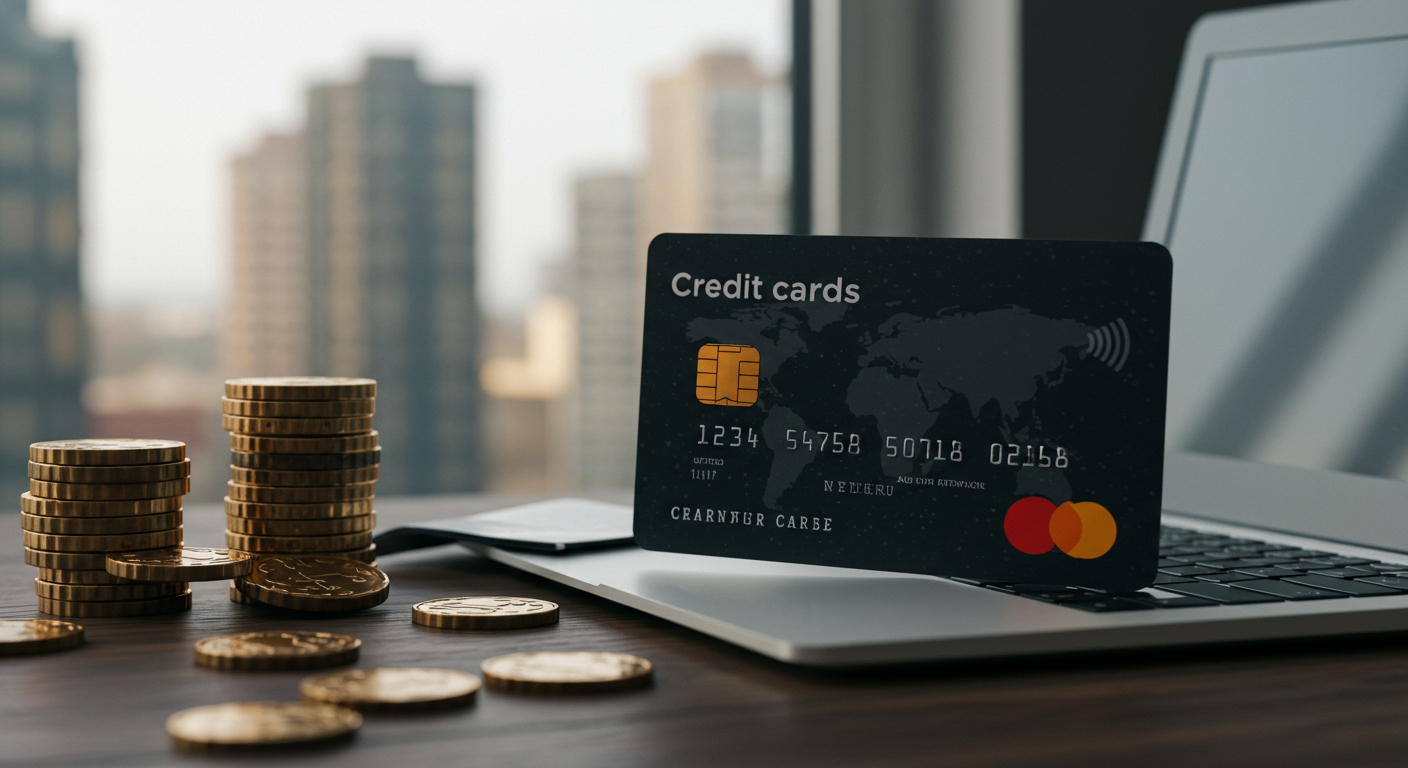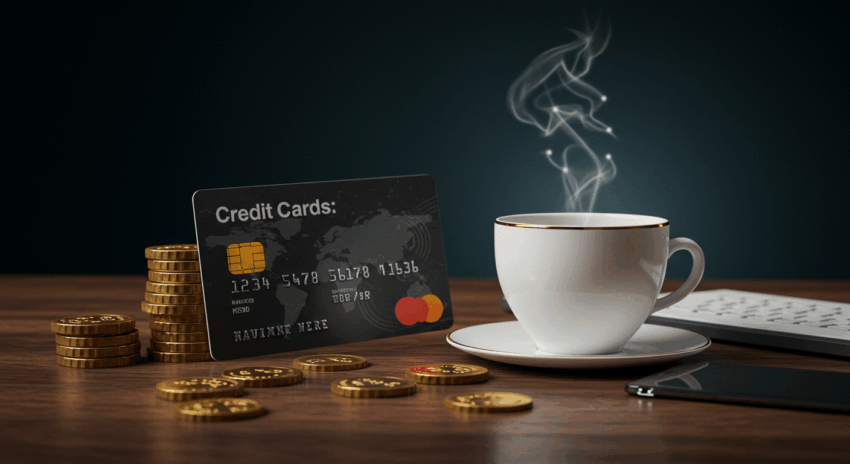Credit Cards: Advantages, Disadvantages, and How to Use Them Responsibly
Credit cards have become an almost indispensable tool in our modern financial lives. They offer convenience, security, and a host of benefits that can enhance your purchasing power. However, this powerful financial instrument is a double-edged sword. Used irresponsibly, it can lead to a spiral of debt and financial stress. This article will provide you with a clear and comprehensive guide to understanding the pros and cons of credit cards and, most importantly, how to use them as a tool for building wealth, not debt.
Navigating the world of personal finance requires knowledge and discipline. By the end of this guide, you will have the practical strategies needed to manage your credit cards effectively, protect your credit score, and make them work for your financial goals, not against them.
The Powerful Advantages of Using Credit Cards
When managed correctly, credit cards offer significant benefits that go far beyond simple payment convenience. Understanding these advantages is the first step toward leveraging them effectively in your financial strategy.
- Security and Fraud Protection: Carrying a credit card is significantly safer than carrying large amounts of cash. If your card is lost or stolen, you can report it immediately to have it canceled. Furthermore, credit card issuers provide robust fraud protection. If unauthorized charges appear on your account, you can dispute them and, in most cases, you will not be held liable for the fraudulent amount. This layer of security is a major advantage over debit cards or cash.
- Building a Positive Credit History: A strong credit score is essential for major life purchases, such as securing a mortgage for a home or a loan for a car at a favorable interest rate. Responsible credit card use is one of the most effective ways to build and maintain a good credit history. By making timely payments and keeping your balances low, you demonstrate to lenders that you are a reliable borrower. This positive record is reported to credit bureaus, gradually improving your score over time.
- Rewards, Perks, and Benefits: The credit card market is highly competitive, which means issuers offer a wide array of rewards to attract customers. These can include cashback on every purchase, travel points or miles redeemable for flights and hotels, exclusive discounts with partner merchants, and access to special events. Some premium cards also offer valuable perks like travel insurance, extended warranties on products, and access to airport lounges. By choosing a card that aligns with your spending habits, you can earn substantial value back on your everyday expenses.

The Hidden Dangers and Disadvantages
While the benefits are compelling, the potential downsides of credit cards are serious and can have long-lasting negative effects on your financial health. Awareness of these risks is crucial for avoiding common pitfalls.
The most significant danger is the high cost of carrying a balance. Credit cards are notorious for their high Annual Percentage Rates (APR), or interest rates, which are often much higher than those for other types of loans. If you do not pay your balance in full each month, the interest charges begin to accumulate rapidly. This process, known as compounding interest, can cause your debt to grow exponentially, making it increasingly difficult to pay off the principal amount you originally owed.
Another major risk is the temptation to overspend. The ease of swiping a card can create a psychological disconnect from the actual money being spent. This can lead to impulse purchases and a lifestyle that exceeds your income. Unlike a debit card, which is limited to the funds in your bank account, a credit card allows you to spend money you do not yet have. Without a strict budget and self-discipline, this can quickly lead to unmanageable debt. Additionally, be mindful of various fees, such as annual fees, late payment penalties, and cash advance fees, which can add unexpected costs if you are not careful.
A Practical Guide to Responsible Credit Card Use
Mastering your credit card is about adopting a set of disciplined habits. By following these practical rules, you can enjoy the benefits while minimizing the risks. This is the essence of financial responsibility.
- Pay Your Bill in Full and On Time: This is the golden rule of credit card management. By paying your entire statement balance by the due date every month, you will never pay a cent in interest. This single habit transforms a credit card from a high-interest loan into a convenient, interest-free payment tool. Consider setting up automatic payments to ensure you never miss a due date.
- Treat It Like a Debit Card: A powerful mental shift is to think of your credit card as a debit card. This means you should only charge purchases that you know you can cover with the money currently in your bank account. Before making a purchase, ask yourself: Do I have the cash to pay for this right now? This prevents you from using the card to live beyond your means and ensures you can always pay the bill in full.
- Keep Your Credit Utilization Ratio Low: Your credit utilization ratio is the percentage of your total available credit that you are currently using. For example, if you have a credit limit of $10,000 and a balance of $2,000, your utilization is 20%. For a healthy credit score, experts recommend keeping this ratio below 30%. High utilization can signal to lenders that you are over-reliant on credit, which can lower your score. Regularly check your balance and make payments if necessary, even before the due date, to keep this ratio low.
- Regularly Review Your Statements: Every month, take the time to review your credit card statement line by line. Check for any unfamiliar charges that could be fraudulent, as well as billing errors. This also helps you stay aware of your spending patterns and identify areas where you might be able to cut back. For more information on selecting the right tools for your financial journey, explore our guide on Financial Products.
Conclusion
Credit cards are neither inherently good nor bad; they are simply a financial tool whose impact depends entirely on the user. When used with knowledge and discipline, they can help you build a strong credit history, earn valuable rewards, and provide a secure way to manage transactions. You can unlock a world of financial convenience and opportunity, reinforcing your long-term goals.
Conversely, without a responsible approach, they can become a trap of high-interest debt that hinders your financial progress for years. The key to success lies in understanding the rules, creating a budget, and committing to paying your balance in full each month. By applying the strategies outlined in this article, you can take control of your credit and make it a powerful asset in your personal finance toolkit. For more tips on building strong financial habits, visit our Savings section.
Frequently Asked Questions (FAQ)
What is the most important thing to do to avoid credit card debt?
The single most important habit is to pay your statement balance in full every single month. By doing this, you avoid all interest charges. To make this possible, you must only spend what you can afford to pay back with the cash you have on hand, treating your credit card as a payment method rather than a source of extra money.
Can a credit card really help my credit score?
Yes, absolutely. Responsible use of a credit card is one of the best ways to build a positive credit history. Lenders look for evidence that you can manage credit wisely. By making on-time payments and keeping your balance low relative to your credit limit (a low credit utilization ratio), you demonstrate financial reliability, which will improve your credit score over time.





